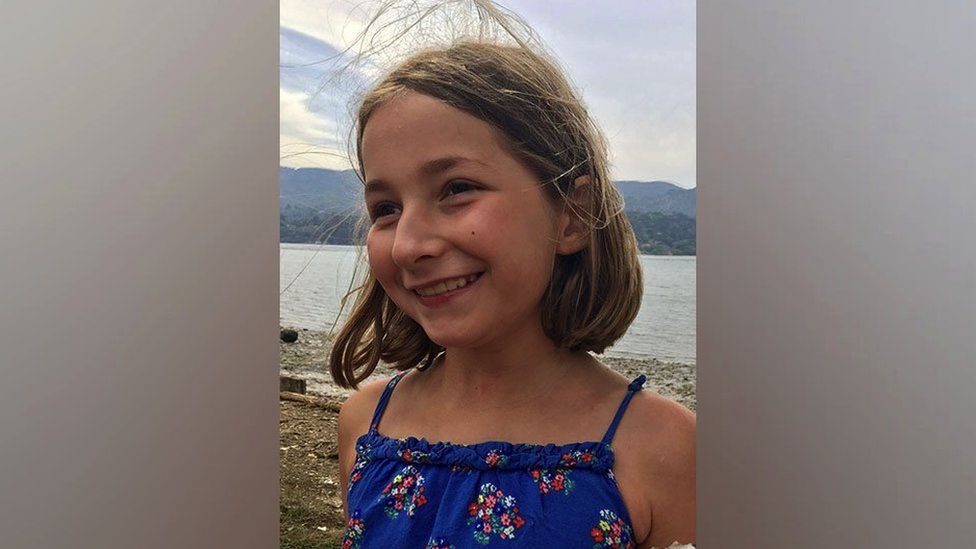ARTICLE AD BOX
 Image source, Merope Mills
Image source, Merope Mills
Martha Mills was enjoying her summer holidays before she had an accident
Health Secretary Steve Barclay says he will explore the plea of bereaved parents who want the introduction of "Martha's rule" to make it easier for patients to receive an urgent second medical opinion in hospital.
Martha Mills died after failures in her treatment at King's College Hospital.
Martha's mother, Merope, has spoken exclusively to the BBC on what would have been her daughter's 16th birthday.
An inquest said Martha could have survived had her care been better.
Martha's story
Martha was on a family holiday in Wales in 2021, cycling on a flat and "family friendly" path, when she slipped on to the handle bars of her bike, with her abdomen taking the full brunt of the fall.
The force pushed one of her internal organs, her pancreas, against her spine, causing significant damage.
She later developed a complication called sepsis - when the body's response to an infection is overwhelming and ends up injuring its own tissues and organs.
Watch: Martha Mills' mother, Merope, shares her struggle with her loss
Martha's mother, Merope, told BBC Radio 4's Today programme that her family were not listened to by senior doctors on several occasions during her hospital care and were "not given the full picture" about Martha's deteriorating condition - leaving them unable to speak up for better treatment.
Merope recalled: "She started bleeding out of the tube in her arm... and one in her abdomen as well.
"It was a lot of blood as well, you know, soaking her sheets, and at night, we had to keep changing them.
"The doctors just told us it was a normal side effect of the infection, that her clotting abilities were slightly off."
But Merope says some experts have advised her that this is the point her daughter should have been moved to intensive care - as the bleeding was probably a sign of very disordered clotting and severe sepsis taking hold.
Image source, Merope Mills
Image caption,Martha wondered about becoming an author, an engineer or a film director
The hospital that looked after Martha has admitted mistakes were made and the trust said in a statement that it "remains deeply sorry that we failed Martha when she needed us most".
Martha had further worrying signs of sepsis, including a rash that was mistaken for an allergic reaction, but it was after Martha had a fit in her mother's arms that she was finally transferred to intensive care.
Merope told the BBC: "The thing that I find most unforgivable, is that they left her so long, she knew she was going to die.
"She lay in bed and she said to me it feels like it's unfixable."
By this point "it was too late for them to do anything and a day later, she was dead".
Merope wants hospitals around the country to bring in "Martha's rule", which would give parents, carers and patients the right to call for an urgent second clinical opinion from other experts at the same hospital if they have concerns about their current care.
Mr Barclay told the House of Commons he had now asked colleagues to explore the idea.
"Martha's rule would be similar to the Queensland system called 'Ryan's rule' - it's a three-step process that allows patients or their families to review a clinical review of their case from a doctor or a nurse if their condition is deteriorating or not improving as expected.
"Ryan's rule has saved lives in Queensland, and I've asked my department and the NHS to look into whether similar measures could improve patient safety here in the UK."
King's College Hospital said it had put several measures in place since Martha's death, including sepsis training for all clinical staff looking after children.
New hospital guidelines recommend the "escalation of a child's care in those cases where we are unable to provide sufficient reassurance to parents".
And the trust has introduced a specially trained team to review seriously unwell children on wards.
Related Internet Links
The BBC is not responsible for the content of external sites.

 1 year ago
48
1 year ago
48








 English (US) ·
English (US) ·